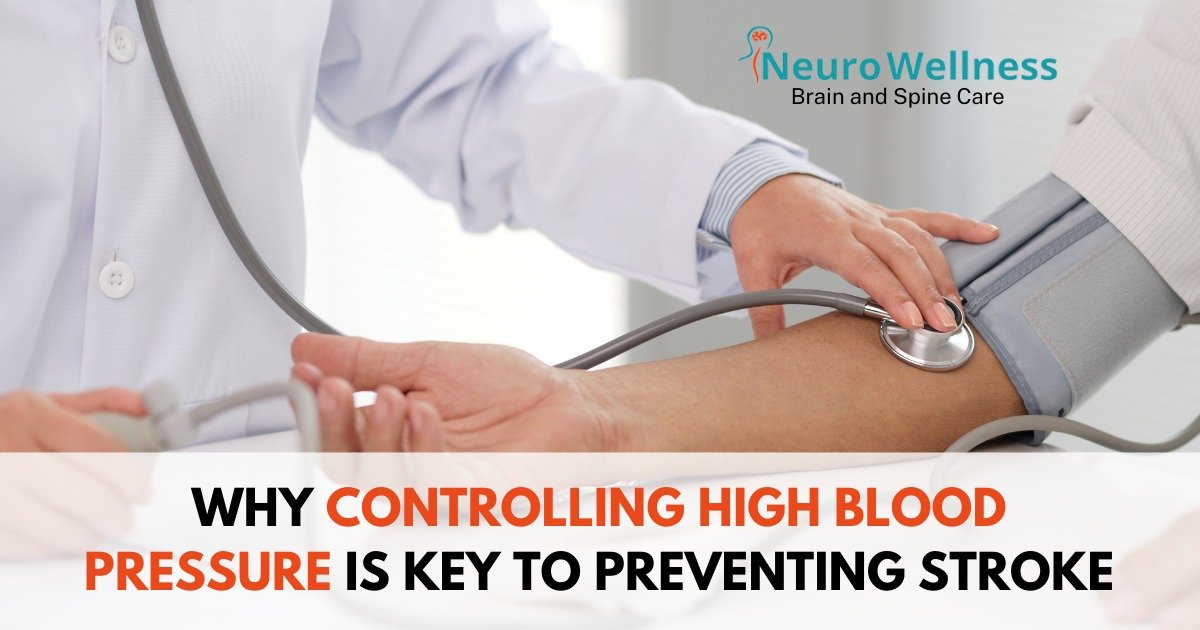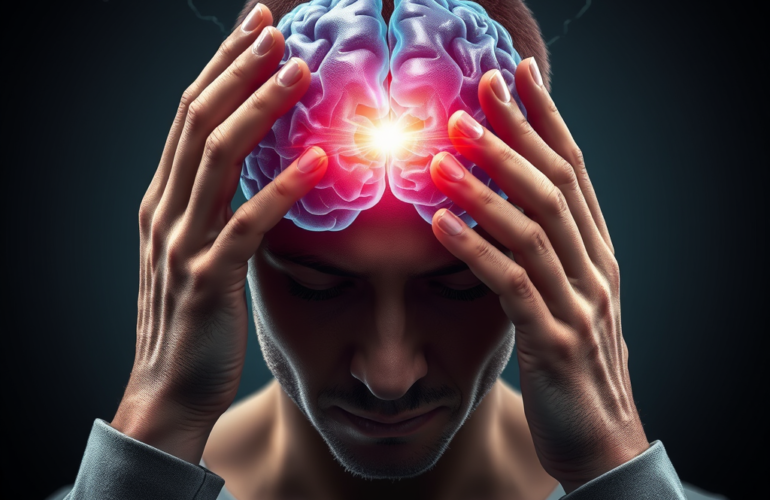High blood pressure and stroke prevention go hand in hand. Hypertension, often called the “silent killer,” quietly damages blood vessels and puts constant strain on the brain without any obvious symptoms. Over time, this hidden pressure weakens arteries, making them more vulnerable to blockages or rupture—both of which can lead to a life-threatening stroke.
What makes it especially dangerous is that many people feel perfectly healthy while this silent damage is taking place. By understanding how high blood pressure increases stroke risk and adopting simple lifestyle changes, you can protect your brain health and lower your chances of serious complications.

Dr. Ganesh Veerabhadraiah
Consultant – Neurosurgeon, Neurointerventional Surgery, Spine Surgeon (Neuro)
23+ Years Experience Overall (17+ years as Neuro Specialist)
Available for Consultation: Jayanagar 9th Block & Kauvery Hospital, Electronic City
Why Controlling High Blood Pressure is the Key to Preventing Stroke
High Blood Pressure, often called “the silent killer,” is one of the biggest risk factors for stroke. You may not feel sick when your blood pressure is high, but inside your body, your brain and blood vessels are under constant stress. If left uncontrolled, hypertension can silently damage your arteries and suddenly strike in the form of a life-threatening stroke.
In this article, we will explore why controlling your blood pressure is so crucial to prevent stroke, what happens inside the body, and how simple lifestyle changes can protect your brain health.
What is High Blood Pressure and Why Is It Dangerous?
Blood pressure is the force with which blood flows through your arteries. A normal reading is around 120/80 mmHg. When your blood pressure stays above 140/90 mmHg, it is called hypertension.
While this may sound harmless, persistently high pressure is like water flowing through a weak pipe—it damages the walls, makes them stiff, and increases the chances of a rupture or blockage. Over years, this silent damage builds up and sets the stage for a stroke.
Read more: Understanding Stroke Causes & Symptoms: What Puts You at Risk
How High BP Leads to Stroke – The Science Simplified
There are two main ways uncontrolled high BP causes stroke:
1. Ischemic Stroke (Blocked Artery)
• This is the most common type of stroke.
2. Hemorrhagic Stroke (Brain Bleed)
• This type of stroke is often more dangerous and life-threatening.
Read more : cerebral aneurysms symptoms diagnosis clipping treatment explained
Shocking Facts That Everyone Should Know
Read more : 5 Lesser-Known Stroke Facts Everyone Should Know
Why You Might Not Know You Have High BP
One of the biggest dangers of high blood pressure is that it usually causes no symptoms. You may feel completely fine while your brain vessels are silently being damaged. That’s why it’s called the “silent killer.”
Some people may occasionally experience headaches, dizziness, or nosebleeds, but these are not reliable warning signs. The only way to know your BP status is to check it regularly—either at home with a monitor or during health check-ups.
Our Brain and Spine Specialist in Bangalore – Dr. Ganesh Veerabhadraiah
If you are concerned about high blood pressure and its link to stroke, it’s best to consult an experienced brain and spine expert. Dr. Ganesh Veerabhadraiah is a leading neurosurgeon in Bangalore with decades of experience in managing neurological conditions, stroke prevention, and advanced neurosurgical treatments. His patient-centric approach ensures that individuals at risk of stroke receive the right diagnosis, lifestyle guidance, and timely treatment to protect brain health.
The Good News – Stroke Risk Can Be Reduced
The most powerful message is this: stroke due to high BP is preventable. By controlling your blood pressure, you can dramatically reduce your chances of a stroke.
Research shows that bringing blood pressure down to a healthy range can lower stroke risk by nearly 40%. This is a huge number and proves how important BP management is.
Simple Steps to Control Blood Pressure
Read more: 7 Brain Foods to Keep You Fit
How to Spot a Stroke Quickly (FAST Test)
Learn more : Clot-Busting Medication Used in Stroke Golden Hour
Emotional Side – Why Families Must Take It Seriously
Many families ignore high BP until something goes wrong. But stroke doesn’t just affect the patient—it changes the life of the whole family. Imagine a loved one suddenly unable to walk, speak, or recognize you. The emotional, financial, and social burden can be overwhelming.
The good news is, with regular monitoring and treatment, this suffering can be avoided. By controlling blood pressure, you protect not only your health but also the happiness of your entire family.
Final Thoughts – Control Your BP, Protect Your Brain
High blood pressure is common, but it should never be ignored. It is the single biggest preventable risk factor for stroke. The steps to control it are simple, and the benefits are life-saving.
Remember: Checking your BP takes only a minute, but it can save your brain for a lifetime.
Protect your brain health. Consult Dr. Ganesh Veerabhadraiah
FAQs
1. Can high blood pressure really cause a stroke even if I feel healthy?
Yes. High BP often shows no symptoms, which is why it’s called the “silent killer.” Even if you feel fine, persistently high pressure can silently damage brain blood vessels, leading to a sudden stroke. Regular monitoring is the only way to know your BP status.
2. What is the ideal blood pressure to prevent stroke?
For most adults, a healthy BP is around 120/80 mmHg. Doctors usually recommend keeping it below 130/80 mmHg if you have other health risks like diabetes, heart disease, or a family history of stroke.
3. If my blood pressure is only slightly high, do I still need treatment?
Yes. Even mildly elevated blood pressure (130–139/85–89 mmHg) increases stroke risk over time. Lifestyle changes may be enough initially, but if BP stays high, medication is needed to protect your brain and heart.
4. Can controlling blood pressure completely prevent stroke?
While BP control greatly reduces the risk—by almost 40%—it doesn’t eliminate it entirely. Other factors like diabetes, cholesterol, smoking, and genetics also matter. But keeping BP under control is the single most powerful step you can take.
5. How often should I check my blood pressure?
• People with risk factors (diabetes, obesity, smoking, family history): Every 3–6 months.
• If you already have high BP: Regular monitoring at home or as advised by your doctor is essential.




